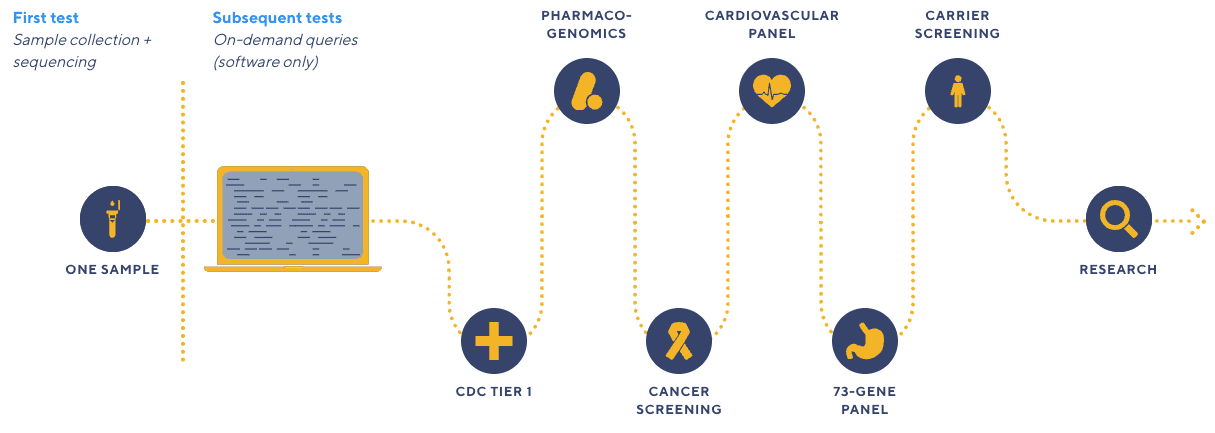What is Sequence Once, Query Often?

The genetics you inherit is the only data set in healthcare that doesn’t change over time, which is why, if you generate high enough quality sequencing data you should be able to use that data again and again both in the care of the patient and for research purposes. Because of this, we deploy a Sequence Once, Query Often® model, in which patients are comprehensively sequenced just once with our Exome+® assay, creating a lifelong digital genomic resource and enabling point-of-care access to a wealth of clinical genetic insights to improve patient care.
Transcript:
Elissa Levin, MS, CGC, VP, Medical Affairs & Services: Our genetic information doesn’t change over the course of our life. Sequence Once, Query Often allows us to get genetic information that can answer lots of different questions.
James Lu, MD PhD, CEO: It naturally lends itself to a model where if you generate the data, i.e. sequencing one time, you should be able to use it over and over again. And that ability to use it as a digital query will drive both speed to answers, but also a much lower cost.
William Lee, PhD, CSO: The Exome+ assay is important to our notion of Sequence Once, Query Often, because it focuses on sequencing and generating the genomic data for every individual for the most important parts of the genome that we believe will have impact to their health care applications. Sequence Once, Query Often is how we think about a future where digital re-use of genetic data is common, and is in fact, the primary way in which people access their genetic data. This is in contrast to the scenario today, where if you need a genetic test, you would have to collect a new sample every time, and you would receive just the answer to the particular question that’s being asked in that case.
Elissa Levin, MS, CGC, VP, Medical Affairs & Services: The idea of Sequence Once, Query Often enables doctors to use the genetic information that has already been generated in real time. This has never been done before. And this is going to completely shift the paradigm of how we think about the value of genetic information when it comes to health care. And part of that has always been, it’s hard to access that information, it’s hard to come in and get multiple different tests.
But also, when you think about the idea that we have this information, and we can interpret it in real time, you’re making decisions about prescribing medications about procedures for your patient in real time. And that has just never happened before. And so it really starts to shift how we think about the value of genetic information.